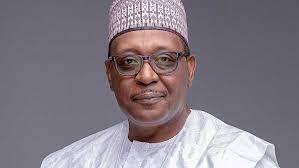The dream of Sustainable Development Goals is encapsulated years ago by the UN to fast-track developments across the world. In Nigeria, stakeholders are re-strategising towards realising the objective; as OKECHUKWU ONUEGBU reports.
All over the world, the need to achieve the Sustainable Development Goals (SDGs) 17 points of actions adopted by United Nations in 2015 is on the front burner.
SDGs, which proffer solutions towards maintaining general well-being and overall development, was anchored on no poverty, zero hunger, good health and well-being, quality education, gender equality and clean water and sanitation.
Others are affordable and clean energy, decent work and economic growth, industry, innovation and infrastructure, reduced inequality, sustainable cities and communities, responsible consumption and production, climate action, life below water, life on land, peace, justice and strong institutions to strengthen the means of implementation and revitalise the global partnership for sustainable development goals.
Gathering of stakeholders
Several scholars and stakeholders across countries have been leveraging on the goals to proffer solutions towards the survival and development of their populace.
Among them is the Centre for Sustainable Development, Nnamdi Azikiwe University (NAU), Awka, which recently convoked distinguished experts across disciplines for a conclave on sustainable development on a theme, ‘Resilient Futures, Thriving Communities: Focusing on Well-being through Sustainable Strategies.’
The three-day events held in a collaboration with United Nations in Nigeria had some captain of industries, entrepreneurs, successful bankers, scientists and other distinguished professionals to dissect the various ways Nigeria can attain Sustainable Development Goals by 2030 as envisaged by the United Nations.
The host and director, Centre For Sustainable Development, Nnamdi Azikiwe University, Professor Echendu Dolly Adinma, had explained that sustainable development refers to the use of today’s resources in a manner that does not compromise the use of these resources by future generations.
Adinma, who recalled that the year 2024 year marks the beginning of the second lap in the implementation of the United Nations Agenda 2030 for SDGs anchored on the 17 interconnected goals, hinted that the core mission of the Centre was to provide a trans-disciplinary platform for the university to engage in issues of sustainable development via responding to the growing demand for education, research and innovation in sustainability.
This, according to her, would work alongside the government, businessed and other interested stakeholders to maximise the commercial and epistemological impact of sustainability research and innovation in knowledge transfer activities generated by the university.
On her part, the chairperson of the occasion and senior special assistant to the president on SDGs, Mrs. Adejoke Orelope-Adefulire, represented by Dr. Ify Nnamchi Ukaegbu, described the programme as “an agenda for better health and well-being of Nigeria in the implementation of the 17 goals of the SDGs.”
According to Orelope-Adefulire, expertise and resources of all critical stakeholders are needed to make the SDGs realisable in the country especially this period bedeviled by insecurity, violence crimes, corruption and high rate of poverty.
In a support of this argument, a discussant at the programme and the chief executive officer (CEO), Katchy Group of Companies, Dr. Kate Isa, argued that Nigeria could only achieve the SDG goals if they encourage science education by updating the curriculum with practical knowledge and skills from primary to higher institution levels.
“Science education in Africa has fallen way behind when compared with the rest of the world. The African Development Bank reported that less than 25% of African higher education students pursue STEM-related career fields with more students pursuing Social Sciences and Humanities. A robust science educational system will be a game-changer for Nigeria and indeed for Africa.
“Investing in science education empowers Nigerians to become problem-solvers, not just scientists and this will build a more sustainable and prosperous future. Challenges in the Nigerian education system are outdated curriculum, lack of adequate teachers training, limited funding, inadequate talent management and succession planning. Only Nigerians will invest their lives and resources to innovate and invent products and services that will solve our unique problems.
“Investing in this would enable us to make informed decision, contributes to SDGs 4 (quality education), SDGs 3 (good health and well-being), and SDGs 16 (peace, justice and strong Institutions), innovation and technology, SDGs 9 (industry, innovation, and infrastructure), healthcare and disease prevention-SDG3, contributes to SDGs 7 (affordable and clean energy), SDGs 13 (climate action), and SDGs 15 (life on
Land),” she said.
Legislative inputs
In a remark, the speaker, House of Representatives, Abbas Tajudeen, represented by Prof Paul Nnamchi, disclosed that the theme of the conference was in line with constitutional act of convergence on security and welfare of the masses being the primary purpose for governance.
Corporate world too
Another discussant and deputy group managing director, Zenith Bank PLC., Dr. Adaora Umeoji, represented by Mrs. Nkiru Kingsley Osualor, hinted that there was a need for concerted efforts from all to realise the SDGs through a responsive investment, which entails a fundamental shift in mindset – a realisation that our actions as investors have far-reaching implications beyond the bottom line.
She said, “It entails assessing the environmental, social and governance performance of companies or projects and actively seeking opportunities that align with sustainable development goals. Responsive investments are an effective tool to address critical areas such as healthcare, education and energy, all of which are aligned with several Sustainable Development Goals (SDGs).
“It is evident that responsive investments and strategic financial management are indispensable pillars in fostering sustainable development. As we navigate an increasingly complex and uncertain economic landscape, it’s imperative that we embrace responsive investments and holistic financial management practices.
“Together, they serve as panacea for sustainable development, offering a pathway towards a more prosperous, inclusive and resilient future for all. Let us seize this opportunity to catalyze positive change and forge a more sustainable world for generations to come.”
Also speaking, a medical expert and consultant Cardiologist, Nneka Clara Udora, disclosed that the means to attaining good health and prevention of heart attack include lifestyle modifications such as physical activity, cholesterol reduction, alcohol and weight reduction, stopping of smoking tobacco, early detection and continual treatment of cardiovascular disease risk factors with adherence to medications, and family history of SCD which may need an implantable defibrillator (ICD).
Speaking virtually, a geriatric nurse practitioner based in Penn Valley, Pennsylvania, Lady Clementine Okorji, argued that Nigerians could overcome the health impact of SDGs by integrating sustainability in their practices and ways of life, including energy and waste conservation, proper medical checkup, among others.
Also, security agents
In their respective speeches, the Inspector General of Police, Kayode Egbetokun, represented by the Assistant Inspector General (AIG) of Zone 13, Godwin Aghaulor, and the Director General of the Department of State Services, Alhaji Yusuf Magaji Bichi, represented by Dr. Peter Afunanya, assured that law enforcement agents would continue to contribute effectively towards achieving sustainable development by providing security of lives and property of the citizens.
Earlier, the vice-chancellor, Nnamdi Azikiwe University, Professor Charles Esimone, represented by the deputy vice-chancellor (Administration), Professor Joseph Ikechebelu, opined that Sustainable Development is high on the agenda of industrialised nations and driven by the enduring efforts of the United Nations.
Esimone, who went down memory lane, posited that, “Economic development and human environment, going beyond the availability of resources and production encompass the possible negative impacts of the care free exploitation of those resources on the environment today which unfortunately has manifested in pollution of air, water and land, deforestation, desertification, global warming and ozone layer depletion leading to climate change.”




